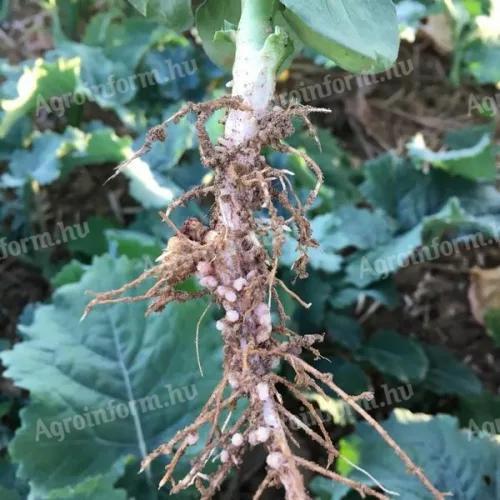 Pest county, 2009 Pilisszentlászló
Pest county, 2009 Pilisszentlászló
 5
5
| Price |
535 HUF +VAT |
| Seed coating |
No |
| Quantity unit |
Kilogram |
Description
Nanaux variety, small-grained, fast-growing broad bean. Seed without pods.
A green manure staple that is worth growing yourself.
Package: 25 kg.
As with all protein crops, broad beans are a favourable crop rotation for cereals: without nitrogen application, they provide at least 20 kg, and on average 40 kg, of active nitrogen to the next crop, thus ensuring a higher yield.
Peas are resistant to aphanomyces. It allows nutrient savings and reduces the number of crop protection operations by 3-4 passes compared to peas. It can be grown on clay or stony soils and is better adapted to coarse seedbeds than other protein crops; it allows for a longer harvest. It improves soil structure with its broad bean taproots. It is also the most suitable protein crop for agro-ecological production.
In green manure mixtures, to optimise its nitrogen fixing capacity, it is recommended to mix 90-100 kg/ha of normal horse beans (550 g) per thousand grain. Nanaux, however, has a thousand kernel weight of only 270 g. It can therefore be sown at half the rate. Nevertheless, it is advisable to grow your own horse bean requirements for mixtures on soil with good water balance.
Advantages:
- High organic matter production capacity
- Ability to fix an average of 40 kg of nitrogen during a few months of vegetation
- It can produce up to 40 kg of nitrogen per year
- Strong taproot root system
Seed production technology:
- Sowing date: as soon as possible, even from the end of February.
- Sowing rate: 200-240 kg/ha of normal grain size broad beans, half the recommended rate for Nanaux.
- For loam: 35-45 seeds per square metre
- For clay-loam soil: 40-50 seeds per square metre
- For chalky soil: 50-60 seeds per square metre
- Grain weight per thousand: 270 g.
- Sowing depth: 5-7 cm.
2-stem sprouting before emergence, possible single-stem shedding after emergence.
2 fungicidal treatments are used to delay flowering.
Of the insect pests, the most important to watch out for is the horse bean weevil, at the time of first pod formation.
The possible yield is 1-4 t, which is mainly determined by the water balance in the soil, as broad beans are very sensitive to water deficit during seed formation.
https://sersiafarm.hu/Lobab-vetomag
Identifier: 7495809
Updated: 22 April 2025 at 17:40:22 CEST


















